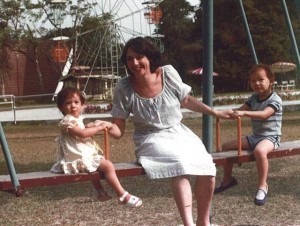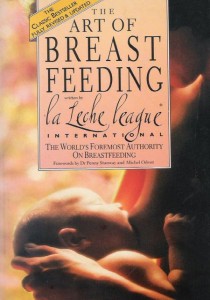While we all know that breastfeeding is best for baby, what is even better for baby is breastfeeding exclusively for at least the first six months.
Health experts say that the optimal period to start baby on solid foods is around the time they are able to sit up without support and pick food and other objects up between their thumb and forefinger. This usually happens sometime between six and eight months.
Before this momentous milestone, baby thrives best on exclusive breastfeeding, which means nothing—no solids, no juice, no formula supplement, not even water—but breast milk to munch on.
Can you imagine the level of convenience that means for us mothers and fathers? Want to go to the mall? Need to bring big sister to her ballet lesson? Owe grandma a visit? Forget about having to cart along sterilised bottles and (horrors!) milk powder. No need to pack baby-sized portions of baby food in tiny containers. Nope! No military-style planning required. Just grab baby, a couple of diapers (you never know!) and go.
Every major health organisation, including the World Health Organisation, UNICEF, the American Academy of Pediatrics, the Australian National Health and Medical Research Council, and Malaysia’s Ministry of Health, now recommends exclusive breastfeeding for the first six months.
Studies have shown that babies fed only breast milk get fewer ear, lung and stomach infections compared to babies fed both formula and breast milk at the same time. Breast milk contains everything that baby needs to grow up healthy and strong and, therefore, they don’t need any other foods until they are ready to chew and make interesting table conversation.
Breast milk is individually tailored for every single baby at every single moment by his mother. As an organic product produced live on demand, the composition of breast milk varies from mother to mother and even changes with the time of day and what mother ate last.
Breast milk’s unique combination of vitamins, minerals and antibodies, not found in infant formula, is designed to protect baby from the scourges of his environment. As a result, breastfed babies have so many advantages over formula-fed babies. They are at lower risk of getting diarrhoea, allergies, asthma, urinary tract infections, obesity and childhood leukaemia, among others.
And they are smarter to boot. Breastfeeding encourages brain growth and breastfed babies have been found to outpace their formula-fed counterparts at every developmental milestone well into adulthood. In addition, adults who were breastfed as infants tend to do better on their cholesterol and blood pressure readings.
Delaying solids gives baby’s digestive system time to mature and the ability to digest food properly which means less upset stomach, gas, constipation and similar ills.
But it’s not just the babies who benefit. What goes around comes around. Breastfeeding helps mothers reduce their risk of getting breast cancer. And it also helps mums burn up to 600 calories a day, which is great news for getting rid of that post-pregnancy weight. Exclusive breastfeeding does wonders for building up the milk supply, which ensures a successful journey towards a healthy baby and a happy mum.








